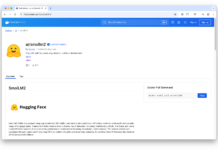Betting Odds vs. Polling: A New Perspective on Predicting the 2024 Elections
In today’s fast-evolving political landscape, the accuracy of predicting election outcomes has become a topic of intense scrutiny. Recent developments and expert opinions have shed light on a fascinating aspect of this discussion: betting odds might be more reliable than traditional polling methods for forecasting the results of the 2024 elections. This revelation has sparked a surge in Google searches, making it one of the most trending topics today.
The Expert’s Insight
Rutgers University Professor Harry Crane, an authority in statistics and probability, recently discussed this topic on CNN Politics. According to Professor Crane, "The data shows if you wanted a single best predictor, one source of information to know what’s going on in the elections – it’s the prediction markets."
Prediction markets, essentially platforms where individuals place bets on the outcomes of various events, have shown a remarkable ability to aggregate diverse opinions and information. These markets operate under the principle that the collective wisdom of a large number of people is often more accurate than individual predictions. This phenomenon is known as the "wisdom of the crowd."
Why Betting Odds Matter
Traditional polling methods have long been a staple in predicting election outcomes. However, several factors can compromise their accuracy, including sampling errors, response biases, and the dynamic nature of public opinion. In contrast, betting odds reflect real-time changes and incorporate a broader spectrum of information, including insider knowledge, public sentiment, and expert analyses.
Betting markets, like PredictIt or Betfair, allow participants to buy and sell shares based on their predictions. The prices of these shares fluctuate in response to new information, making them a dynamic and continuously updated reflection of the prevailing sentiment. This real-time adaptability is a significant advantage over traditional polls, which are often static snapshots of a particular moment.
Historical Accuracy
The accuracy of prediction markets is not a new phenomenon. Historically, betting odds have often outperformed polls in major political events. For instance, during the 2016 U.S. Presidential Election, prediction markets were among the first to signal Donald Trump’s unexpected victory, even as many polls suggested a Hillary Clinton win.
Similarly, in the 2020 election, prediction markets provided a more nuanced understanding of the race’s complexity, capturing the tightening competition between Joe Biden and Donald Trump more effectively than many polls.
Republican Caution
Despite the promising insights from betting markets, Professor Crane cautions that Republicans "shouldn’t just spike the ball just yet." This implies that while betting odds might offer a more accurate prediction, they are not infallible. Political campaigns are dynamic, and unexpected developments can significantly alter the landscape.
Broader Implications
The growing credibility of betting odds as a predictive tool has broader implications beyond just election forecasting. It challenges the traditional reliance on polls and suggests a shift towards more diversified methods of gauging public opinion and sentiment. This trend could influence how political campaigns strategize and allocate resources, potentially leading to more adaptive and responsive approaches.
Moreover, the increasing interest in prediction markets signifies a democratization of forecasting. Unlike traditional polling, which often relies on specialized agencies, prediction markets empower individuals to contribute their insights and expertise. This collective approach can lead to a more comprehensive and nuanced understanding of political dynamics.
Public Reaction
Public reaction to this development has been mixed. Some view it as a positive step towards more accurate and reliable predictions, while others remain skeptical about the legitimacy of betting markets. Critics argue that betting odds can be manipulated and may not always reflect genuine public sentiment. However, proponents highlight the markets’ historical accuracy and real-time adaptability as significant advantages.
Expert Reviews
Several political analysts and experts have weighed in on this topic. Nate Silver, founder of the statistical analysis website FiveThirtyEight, has previously acknowledged the potential of prediction markets. He noted that while polls provide valuable data, the integration of various predictive tools, including betting odds, can lead to more robust forecasting models.
Similarly, Justin Wolfers, a professor of economics at the University of Michigan, has conducted extensive research on prediction markets. His studies suggest that these markets are particularly effective in aggregating diverse information and minimizing individual biases, leading to more accurate predictions.
Good to Know
For those interested in exploring prediction markets, platforms like PredictIt, Betfair, and Smarkets offer opportunities to participate. These platforms provide insights into various political events, allowing users to track trends and make informed predictions.
It’s essential to approach these markets with a critical mindset. While they offer valuable insights, they are not foolproof. Participants should consider multiple sources of information and remain aware of potential biases and manipulations.
Conclusion
As we approach the 2024 elections, the debate over the most reliable predictive tools continues. Betting odds, with their ability to aggregate diverse information and adapt in real-time, present a compelling alternative to traditional polling methods. While they are not without limitations, the growing interest in prediction markets signals a shift towards more dynamic and inclusive forecasting approaches.
For more detailed information and to watch the full discussion with Professor Harry Crane, visit CNN Politics.
This topic’s trending status on Google underscores the public’s keen interest in understanding the most reliable methods for predicting election outcomes. As the political landscape evolves, so too must our approaches to understanding and forecasting its complexities.


































